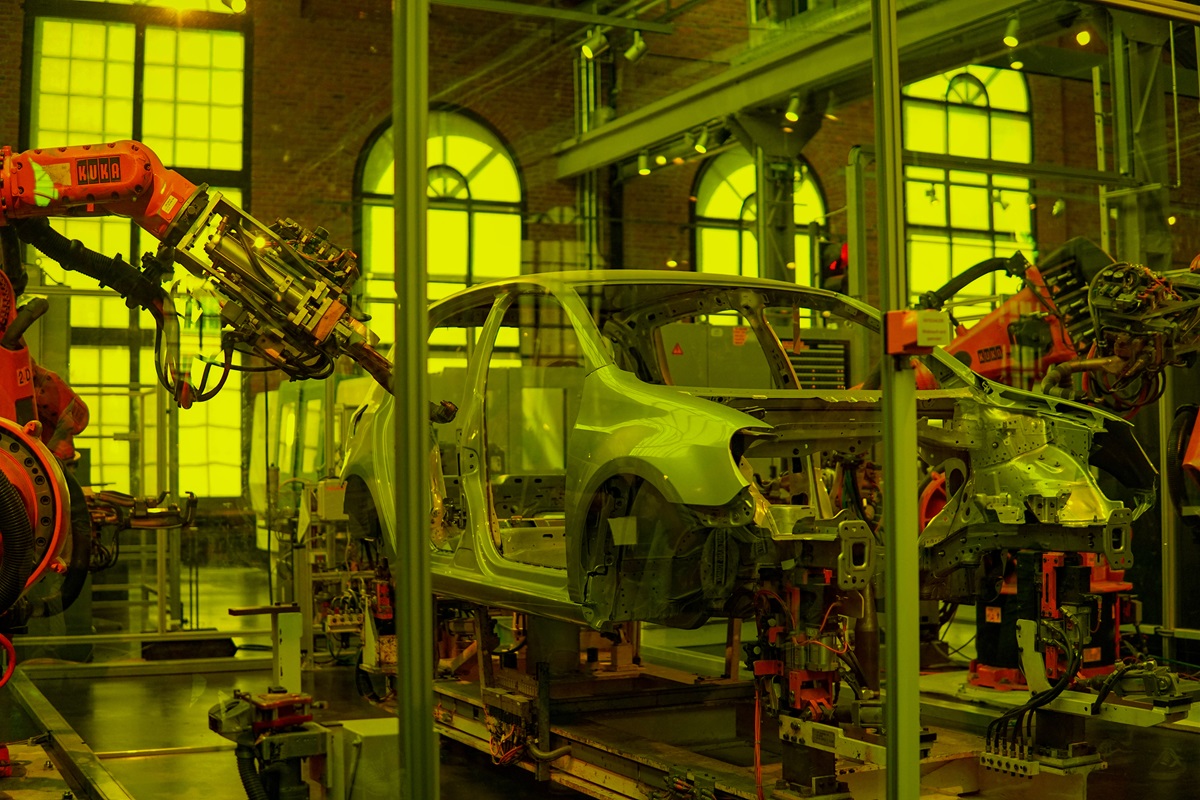Blog
5 Best Rust Proof Fasteners for Corrosion Resistance
In the automotive industry, high-quality fasteners are essential for ensuring the safety and reliability of vehicles. Harsh environmental conditions such as road salt, moisture, and chemicals can lead to rust, corrosion, and ultimately breakdowns and failures with serious consequences. When you consider that the global fastener market is expected to increase to over $123 billion by 2030, it’s important to understand which corrosion-resistant fasteners are the best.

Exploring Rust-Proof Fasteners
To prevent rust and corrosion, automakers use a variety of materials and coatings. Some of the best rust-proof, corrosion-resistant automotive fasteners include:
- Stainless steel: Stainless steel refers to a type of steel that contains chromium, which forms a protective oxide layer on the metal’s surface. This layer prevents the steel from reacting with oxygen and other corrosive elements. Stainless steel fasteners are highly resistant to corrosion.
- Zinc-plated: These fasteners feature a thin layer of zinc, which acts as a sacrificial metal. This means that it corrodes before the base metal, protecting it from rusting. Zinc-plated fasteners are a good choice for automotive use where moderate corrosion exposure is expected.
- Nickel-plated: Nickel plating involves applying a thin layer of nickel to the base metal surface, where it forms a protective barrier. Nickel is non-reactive and also provides cathodic protection, which is useful if plating damage penetrates down to the substrate.
- Titanium: Corrosion-resistant fasteners made of titanium are often the most durable and the most expensive. Titanium is a lightweight, strong metal that forms a protective oxide film when exposed to air or moisture. This film is stable, tightly adhered, instantly formed, and self-healing.
- Aluminum: While not as strong as steel fasteners, aluminum fasteners are less likely to rust. This lightweight metal is a great choice for applications where weight is a concern, such as race cars and aircraft.
When looking for automotive fasteners, these types offer the best resistance to rust and corrosion.
Covering the Connections
Besides metals and metal alloys, automotive manufacturers also employ special coatings to make rust-proof fasteners, including the following:
- Powder coating: Powder coating is a process of applying a dry powder to a base surface. The powder is then heated, causing it to melt and flow into a smooth, durable coating.
- E-coating: Formally called electrophoretic deposition, electrocoating or e-coating is a process of applying paint to the surface of a metal using an electric current. E-coating provides uniform coating without holes.
- Anodizing: Anodizing is a process of converting the surface of a metal into a protective oxide layer. This process is named as such because the metal to be treated makes up the anode electrode in the chemical reaction that forms the electrolytic cell. Anodizing improves the material’s resistance to corrosion and wear, improving adhesion for primers, glues, and other surface treatments.
Finding the Right Fasteners
Without the proper automotive fasteners, a vehicle can experience failures that are catastrophic. It’s critical to have corrosion-resistant fasteners. This includes selecting the right materials and coatings, as well as being careful about how these parts are designed, installed, and maintained. ROGO Fastener is your trusted source for American-made fasteners. Contact us to find the parts you need at prices you’ll love.
Sources:
- https://straitsresearch.com/report/industrial-fasteners-market#:~:text=The%20global%20industrial%20fasteners%20market,period%20(2022%E2%80%932030).
- https://en.wikipedia.org/wiki/Stainless_steel
- https://www.corrosionpedia.com/definition/4694/nickel
- https://en.wikipedia.org/wiki/Substrate_(materials_science)
- https://en.wikipedia.org/wiki/Powder_coating
- https://en.wikipedia.org/wiki/Electrophoretic_deposition
- https://en.wikipedia.org/wiki/Anodizing
